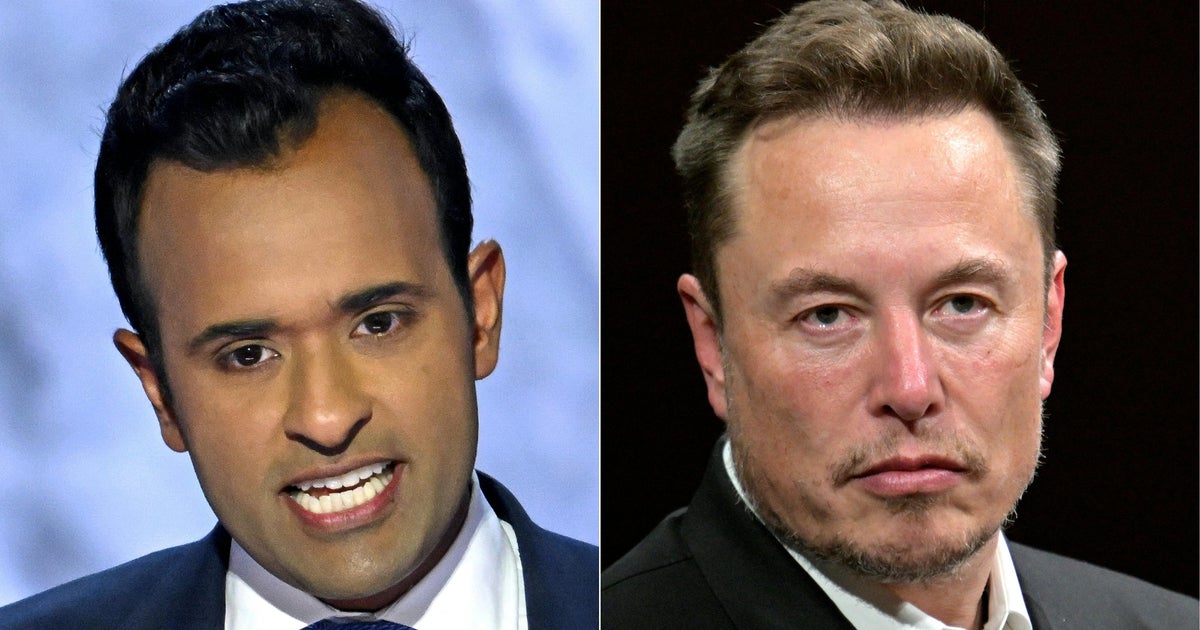UAW chief Shawn Fain says latest offers show automakers have "money left to spend"
United Auto Workers President Shawn Fain said Friday that Detroit's Big Three automakers have put better offers on the table, but still have a ways to go to "finally, finally start to make things right" as the union's historic strike enters its sixth week.
Stellantis, General Motors and Ford Motor have all proposed 23% pay hikes over four years, the union leader said in a webcast on Facebook, speaking hours after GM sweetened its offer to match an offer from Ford; Stellantis (which owns Chrysler, Dodge, Jeep and Ram, along with several foreign car brands) later also enhanced its proposal, Fain said.
"We've got cards left to play and they've got money left to spend," Fain said. "That's the hardest part of the strike. Right before a deal is when there is the most aggressive push for that last mile."
In launching a coordinated strike against the three automakers on Sept. 15, the UAW demanded on a 36% wage hike spread over four years. The union also asked the automakers to eliminate a two-tiered wage system the companies adopted in 2007 as the companies were struggling financially, along with annual cost-of-living adjustments, pension benefits for all employees, greater job security, a faster path to full-time jobs for temporary workers and a four-day work week.
"Room to move"
In the past 24 hours, the UAW has received new offers from two of the three companies, "so despite all the bluster about how much the companies are stretched, clearly there is room to move," Fain said.
"What happened this week — with no new plants out, both companies put a lot more on the table," Fain said of GM and Stellantis. "That's because they know if they didn't move, there would be serious consequences."
Roughly 34,000 workers at six Big Three vehicle assembly plants and 38 parts distribution warehouses are out on strike.
In a statement, GM said on Friday that it offered "substantial movement in all key areas in an effort to reach a final agreement with the UAW and get our people back to work."
GM's overture included a pay increase for most UAW workers to $40.39 an hour, or about $84,000 by the end of the four-year contract, according to the automaker. That's up 23% from the $32.32 an hour that most factory workers currently earn.
Cost-of-living raises relinquished by many workers in 2007 also would be reinstated, boosting the total value of the proposed pay increase to more than 30% by September of 2027, according to GM.
The vehicle maker had previously agreed to include new electric vehicle battery plants in the national UAW contract, a move that basically ensures they are unionized — a key goal for Fain and the UAW.
"It is time for us finish this process, get our team members back to work and get on with the business of making GM the company that will win and provide great jobs in the U.S. for our people for decades to come," GM said.
Ford make a similar call earlier in the week, with Bill Ford, the company's executive chairman, saying the UAW and its leaders were casting the company as the enemy, instead of "Toyota, Honda and Tesla — and all the Chinese companies that want to enter our market."
Stephen McCray, one of the striking GM workers at a factory in Wentzville, Missouri near St. Louis, was pleased by the autmaker's last offer, but worries the company will wait a year to give cost of living increases.
Still, McCray thinks workers will ratify the contract because of the raises, cost of living pay and other benefits, if Fain tells workers this is the best deal they're likely to get.
"If this is what he's going to bring to the table, after everything that has been going on since September, I believe it will be ratified," McCray said. "This might be the best that they might bring out."
—The Associated Press contributed to this report.



